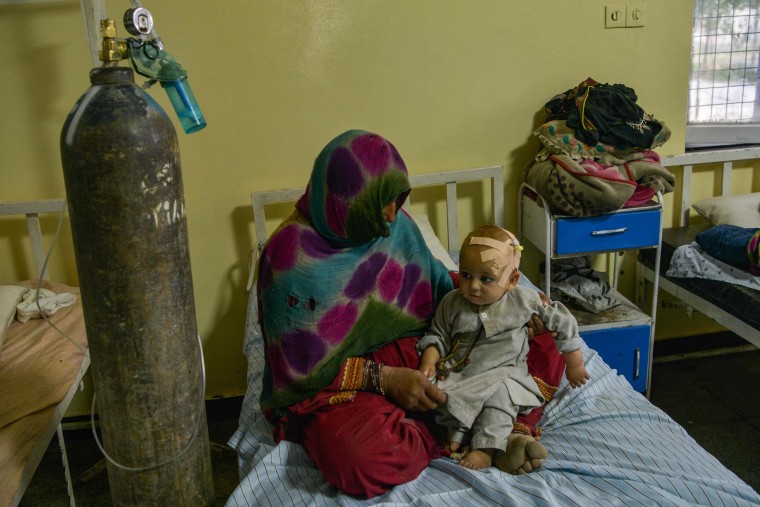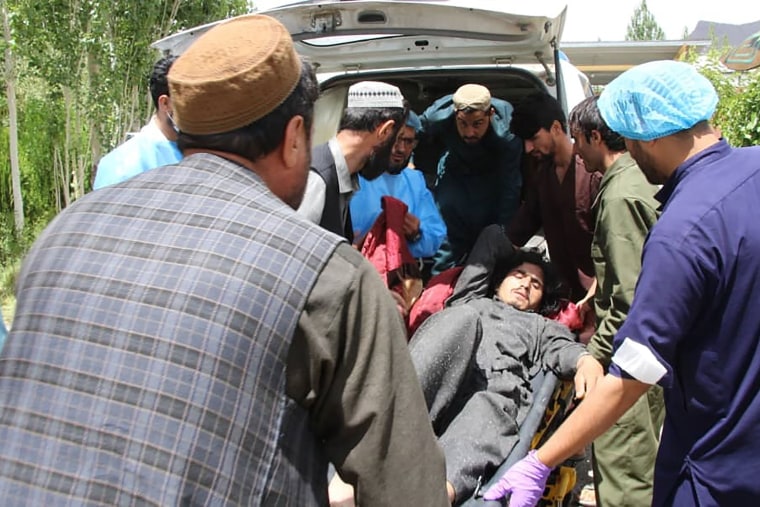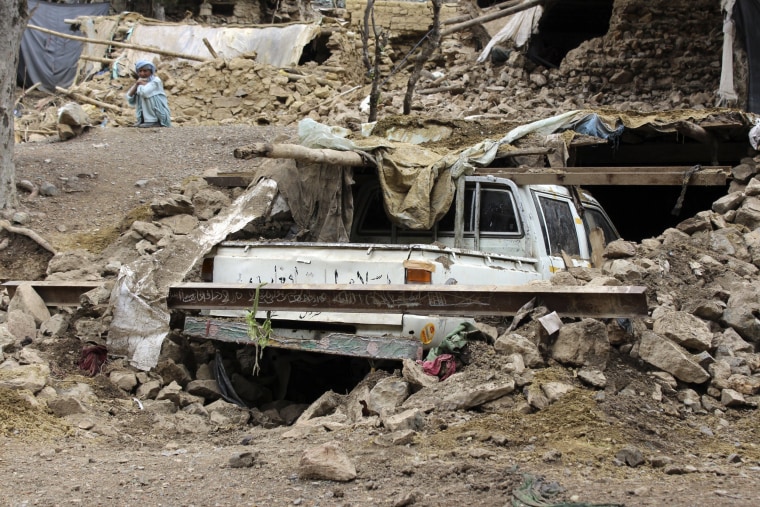KABUL, Afghanistan — Dadmir Khan lost his three daughters, son and mother Wednesday in one of the deadliest earthquakes to hit Afghanistan in decades.
Now, he worries about who in his family won’t survive the quake’s aftermath as medication for injured people has become scarce.
“It felt like there was a huge explosion,” Khan, 45, told NBC News.
The farmer from the remote, mountainous Paktika province near the Pakistani border added that he was thrown to the floor several times by the quake, which according to the United States Geological Survey was a magnitude 5.9.
He said his son Nabiullah, 7, and his three daughters — Lila, 4; Amina, 3; and Nazia, 2 — and mother, Guljama, 65, were killed.
Other members of his family were being treated in hospital, “but they are not in a good condition because there isn’t enough medication in the facility,” he said.
“We’re looking to transfer them to somewhere else,” he added.

Officials from Afghanistan’s Taliban rulers said at least 1,000 people had died and 1,500 were injured by the quake, which had its epicenter in Paktika province, although they warned that the toll may still rise.
Footage from villages tucked among the rough mountains showed residents picking through the rubble of collapsed homes, and it is feared that many could be trapped under collapsed buildings.
Zarinullah Shah said a large percentage of his community in the Barmal district of the Paktika province had lost family members.
“In our area, the majority of the houses were built with mud,” said Shah, 47, adding that most of the buildings where he lived had been damaged or destroyed and around 300 families had lost their homes.
As a result, he said they had no choice but to spend the night in the open.
Thousands were in desperate need of tents, blankets, food and medicine, he said, adding that “the Afghan government was trying to help the injured people, but they don’t have enough resources, particularly helicopters and doctors to fulfill the needs of the affected people.”

“The situation is very bad,” said Dr. Mohammad Anwar Haneef, the senior program coordinator for Care International in Afghanistan, one of the few international aid agencies to stay in the country after the Taliban seized power in August as the U.S. and its NATO allies prepared to pull out.
Haneef, who was coordinating aid efforts from the country’s capital, Kabul, added that ambulances could not easily get to the affected areas.
In a rare move, the Taliban’s reclusive supreme leader, Haibatullah Akhundzada, who almost never appears in public, called for “the international community and all humanitarian organizations to help the Afghan people affected by this great tragedy and to spare no effort to help the affected people.”
“We ask God to save our poor people from trials and harm,” he said in a statement put out by the Taliban spokesman.
But the response is likely to be complicated since many governments are wary of dealing directly with the militant group, which has issued a flurry of repressive edicts curtailing the rights of women and girls, and the press, reminiscent of the last time it was in power, before the U.S. invasion in the wake of the 9/11 attacks.
The reluctance of the international community could slow the deployment of emergency aid and teams typically sent after such natural disasters.

The earthquake has also hit at a time when Afghanistan is already deep in one of the world’s worst humanitarian crises, with millions facing increasing hunger and poverty after the cutoff of international financing to the Taliban.
“People are jobless,” Haneef said. “They have no income, so the private sector is not functioning well.”
He added that it was difficult to transfer out of the country to buy medical supplies and that this was exacerbated by the fact that the country “was suffering from low income on one side and high costs on the other.”
With huge swaths of the country destroyed, he said his country needed “a short-term plan to provide food, shelter, medicine and medical support.”
“Unfortunately, this will have long-term consequences for people,” he added.
Ahmed Mengli reported from Kabul and Mushtaq Yusufzai from Peshawar, Pakistan.
Associated Press contributed.
Source: | This article originally belongs to Nbcnews.com










